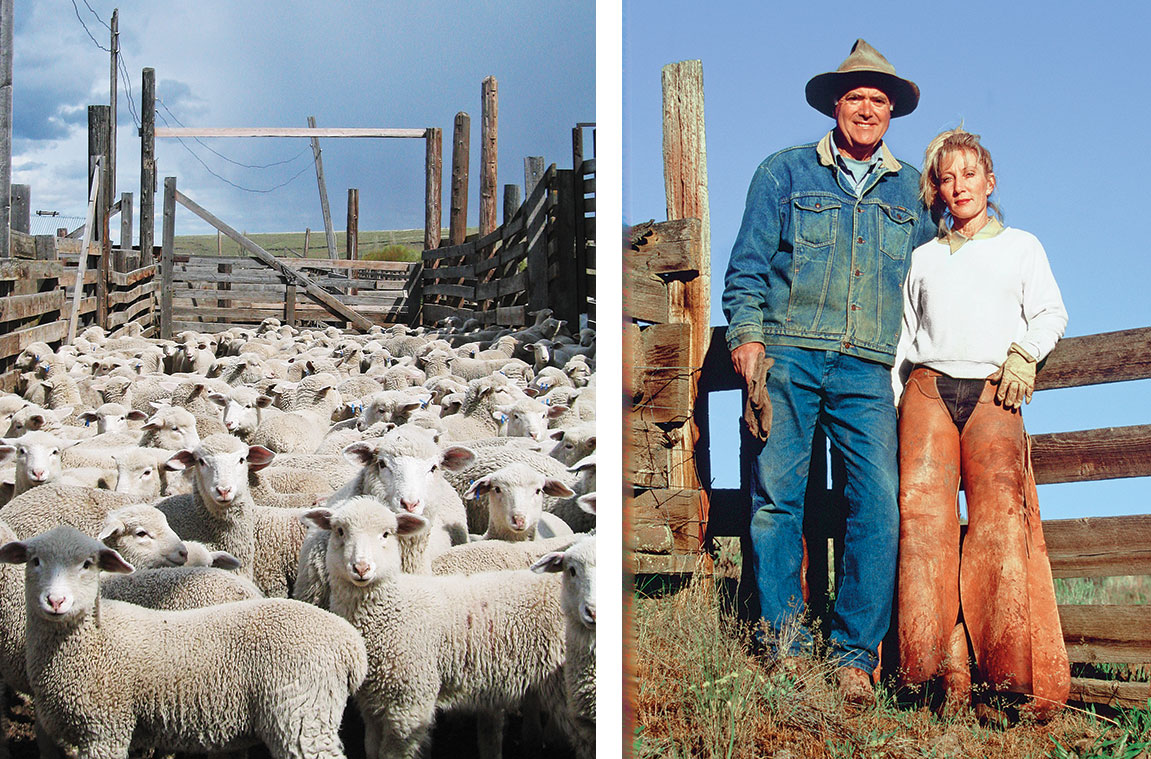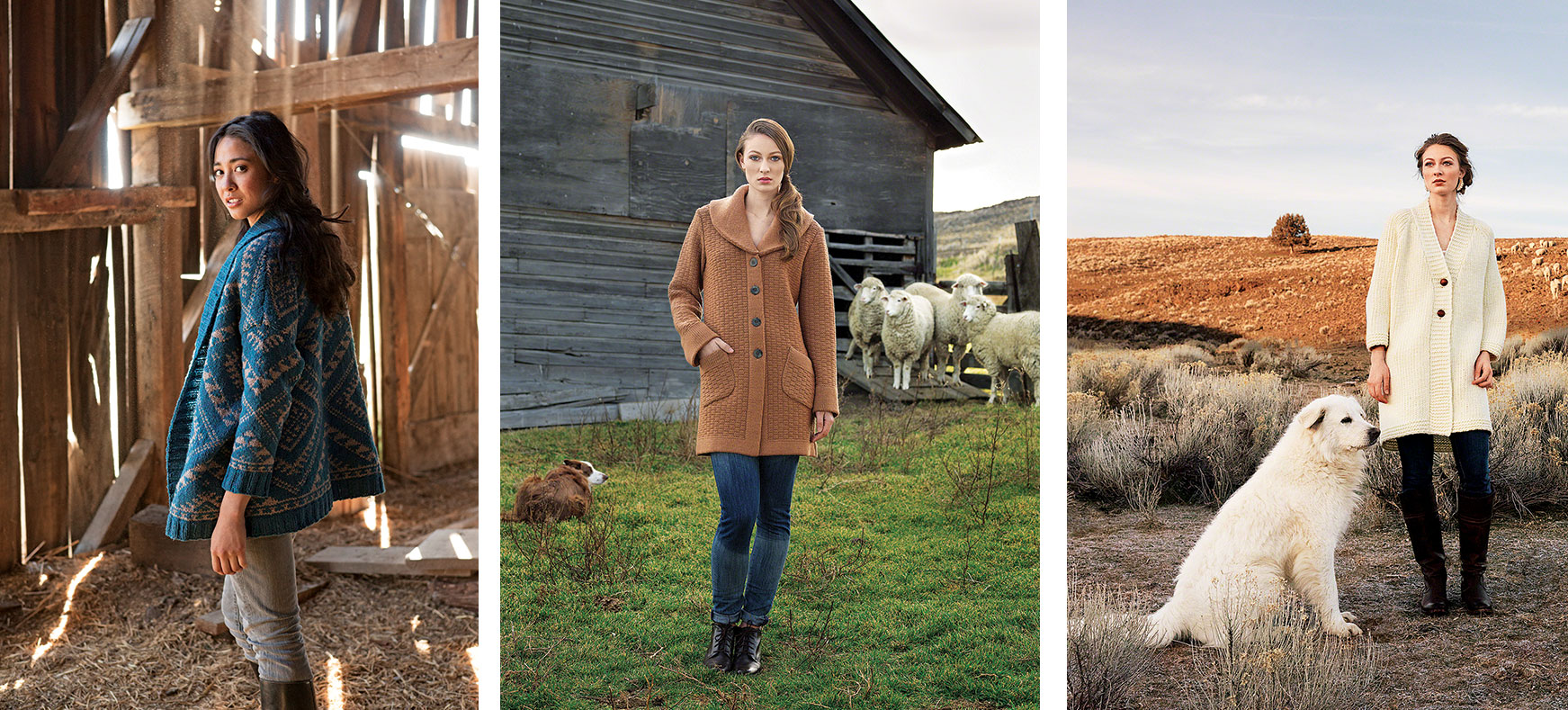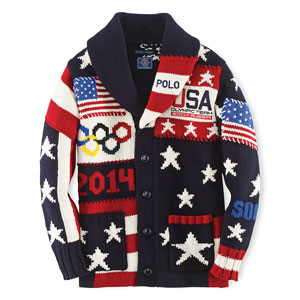From a ranch in Oregon to the runway to the opening ceremonies of the Olympic Games, the wool from Imperial Stock Ranch is well-traveled — and well-loved.
Jeanne Carver’s life changed thanks to a phone call. Or, to be more precise, thanks to the pastoral sounds of sheep on her Oregon ranch, which were carried through her phone receiver all the way to a famous fashion house in New York City.
The sound is one familiar to the longtime rancher: mother sheep bleating softly to their lambs, the bells around their necks tinkling as they head toward their nighttime bedding grounds. Seated outside on the same earth her family has spent decades tending, Jeanne watched a group move up the hill and held her phone high.
“Can you hear it?” she asked. On the other end of the line sat an employee of the Ralph Lauren clothing company who was interested in considering Imperial Stock Ranch for an upcoming secret project. He could indeed hear it, he said — loud and clear.
The 32,000-acre Imperial Stock Ranch is set in Oregon’s high desert country near Shaniko, 160 miles southwest of Portland. The ranch’s story begins in 1852 with the birth of its founder, Richard Roland Hinton, on the Oregon Trail. His family settled in the Willamette Valley, but young Richard struck out on his own in 1871, staking a 160-acre homestead claim on land that would become the ranch. He made his first home in a dugout cave in a creek bank on the property. By the early 1900s, Jeanne says, “Hinton had become the largest individual owner of land and livestock in the state of Oregon, and one of the largest sheep ranchers in America, running up to 85,000 head of sheep.”
Richard’s son, James, took over the ranch in 1915, later partnering with George Ward to handle the growing empire. In 1988, Ward sold the heart of the Imperial Stock Ranch holdings to Jeanne’s husband Dan. Dan loved the from the start, but when only two salmon returned to spawn in one of the ranch’s main creeks after the first year, he realized that certain practices needed to change if he wanted to ensure the property’s future.
“We knew all was not perfect,” Jeanne says. So Dan initiated a broad rotational grazing system with cattle and sheep, timing grazing with the seasons, and converted all of the farmland to no-till. Now they have more than 1,000 salmon returning to spawn in their creeks. “We love that story,” she says.

But while the land was becoming more fertile, and more profitable, other challenges sprang up. Between 1996 and 2000, Jeanne notes, 26,000 sheep producers went out of business in the United States. The price of lamb was down, wool demand was down, textile manufacturing had moved offshore, and the Carvers were losing 40 percent of their lambs to predation (mostly coyotes). Imperial Stock Ranch had to shift gears or risk shutting its gates on sheep production.
The Carvers had been selling their wool raw, but they figured they could make a better profit if they found processors and sold a finished product instead. Imperial Yarn was born. And soon, with the help of 20 area women who set to work crocheting, knitting, and weaving under Jeanne’s direction, the finished yarn became finished goods.
“I knew nothing about the apparel industry,” ” Jeanne says. “It was just fly by the seat of your pants, and logic, and finding a way forward.”
By 2005, a national clothing retailer came calling, placing an order for distribution. For the next four years, Jeanne had women within a 100-mile radius crafting sweaters, jackets, scarves, and wraps — “all kinds of beautiful apparel,” she says. Then she met Anna Cohen, a Portland-based fashion designer who was receiving kudos for her work with sustainable fabrics. That relationship would prove fateful.

Meanwhile, back at the ranch, other changes where afoot. While Jeanne had been focused on the wool, Dan concerned himself with the edible portion of the animal. “He said, ‘Let’s work on the meat — that’s where the real money is,’ ” Jeanne says. The couple decided to stop selling their lamb to the industrial food chain and instead began selling it directly to restaurants and chefs around Oregon.
The Carvers offered door-to-door delivery service, from Bend to Portland, Oregon, and even beyond state lines to Washington’s Columbia River Gorge region.
Chefs became interested immediately and started placing orders for their entire year’s supply. Chef John Newman, of Newmans at 988 in Cannon Beach, Oregon, served Imperial Ranch lamb at the James Beard House in New York City, and Chef Mark Hosack, of Gracie’s at the Hotel deLuxe in Portland, featured it in his People’s Choice award-winning dish at the American Lamb Jam cook-off in New York last winter.
“It all happened by word-of-mouth,” Jeanne says. “We never advertised; we never really pounded the pavement, even.” She and her husband simply believed in their product. “If you take a sheep and add water, it’s life to man,” she says. “They’re food, clothing, and shelter in one animal. And so we just felt we had to honor that.”
As the meat business took off, Jeanne continued to work in yarn. With the help of her designer, Anna Cohen, Jeanne expanded Imperial Yarn’s product line from scarves and sweaters into a true collection, which included blazers, dresses, slacks, and skirts. In 2009, the Imperial Collection by Anna Cohen headlined Portland Fashion Week.
“The reviews were unbelievable,” Jeanne says. “Things got crazy, and Dan and I looked at each other and went, ‘Oh no, we’re not getting into the fashion business.’ ” But, after a brief pullback in 2010 and 2011, when Imperial Stock Ranch went back to focusing on yarn, they did go into fashion after all — Olympic fashion.

By the summer of 2012, Jeanne says, “[We] were going along contently selling yarn in craft markets, and my life was getting a little more smooth again.” Then, on a sunny day in July a representative from product development for Ralph Lauren in New York called, rattling off questions before he even identified himself. Jeanne stopped him. “Excuse me, what yarn store are you with?” she asked. When he said Ralph Lauren, she was shocked speechless for a moment. But she quickly recovered and held up the phone to the sounds of her sheep. The Oregon ranch life broadcast straight through to Madison Avenue.
When the Ralph Lauren team announced they wanted to visit, Jeanne fretted over preparations. “I thought, What will I wear? What will I feed them?” But her concerns were needless. The company was so impressed, it not only signed a contract with Imperial Stock Ranch to be the sole supplier of yarn for the U.S. Olympic opening ceremony sweaters for the Sochi Games, Ralph Lauren also made the ranch the focus of their PR campaign, plucking it from about 40 American companies with whom they had teamed up on the project.
“We never expected anything like this,” Jeanne says. “What Ralph Lauren did was connect all these people in every factory and every embroidery plant and cut-and-sew and knitting facility — all of us became connected to our Olympic team in a way we never would’ve been. We cared more than ever before, and that was really cool.”
When the design was revealed on The Today Show, she was watching from a hotel room in Charleston, South Carolina, where she was one of the speakers at the American Sheep Industry Association’s annual convention. Minutes later, the phone rang, and her own archival sweater was waiting for her at the front desk. But that was still nothing compared to watching the ceremony. “Dan and I just stood together in silence and tears came to our eyes,” she says.
Since that moment, everything has been a blur. This fall will bring a new collaboration between Cohen and Imperial Stock Ranch, supported in part by a large grant Jeanne received from the USDA in June 2013 to develop a line of women’s apparel made from sustainable American wool. The 14 new pieces include chunky knit sweaters, sleek cropped pants, figure-skimming dresses, and tailored blazers. The color palette reflects the same hues Jeanne and Dan see on the ranch. Plus, in addition to apparel, the Carvers are launching their own line of Imperial blankets and throws.
Jeanne says finding inspiration at the ranch is easy. “When you open your eyes every morning and look out at what we look at, you can’t help but be inspired. It’s the beautiful landscape, and it’s where all that life comes.” Indeed, as she rides her four-wheeler around the property, Jeanne often finds herself stopping to sketch the pattern of spots on a calf ’s hide for possible use in a future design. “Our clothing reflects what you see in nature,” she says. “Pattern lives, and it’s all around you.”
Cohen explained her goal for the Imperial Collection in a statement: “Through the collection, I wanted to translate the beauty of the ranch and its history, which connects us each to our own history. When someone experiences the luscious, soft wool transformed into one of our pieces, I hope they feel the energy of the place from which it comes and the intention of the many hands that lovingly made it come to life.”
Jeanne is thrilled with the results of Cohen’s work. “She’s taking the roots of fashion — which is us, we’re the roots — she takes this life and this message of sustainability and translates that to apparel that speaks to an urban audience, with more urban styling”
Whether it’s worn on a busy city street or on an open pasture — or in the Olympic stadium in Sochi, Russia — the Carvers are proud of the clothing. And they are especially delighted to see the farm-to-table trend transfer to apparel. Says Jeanne, “This is just the start of a movement.”
For more information, visit imperialstockranch.com, imperialyarn.com, and imperialcollectionbyac.com.
From the October 2014 issue.












